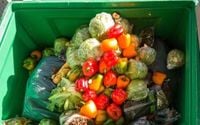As Easter approaches, Romanians are preparing for the holiday with traditional celebrations, but rising prices are making it harder for families to maintain their customs. In 2025, the average value of an Easter basket ranges between 300 and 600 lei, reflecting significant inflation and market fluctuations that have impacted the cost of staple items.
According to estimates from retailers, a basic Easter basket, which typically includes eggs, cozonac, pasca, lamb, wine, and some sweets, can easily reach 400 to 450 lei in major cities. For those opting for premium or organic products, the cost can soar to over 800 lei, especially if the basket contains artisanal cheeses or fine wines.
Eggs, a staple of the Easter celebration, are priced between 1.2 and 1.8 lei each in 2025. The traditional sweet bread known as cozonac, whether homemade or purchased from a supermarket, averages between 35 and 60 lei. Lamb, a favorite for Easter meals, is priced at about 50 to 70 lei per kilogram, depending on the region.
Additionally, the demand for pasca, a sweet cheese bread, remains high, particularly for gourmet versions. Red wine, favored by many Romanians for the Easter table, ranges from 30 to 80 lei per bottle, with a preference for local varieties. Fine cheeses and cold cuts are increasingly popular, especially among younger consumers, and are often included in gift baskets.
The trend toward pre-packaged Easter baskets is also on the rise, with many consumers choosing convenient options available in supermarkets or online. These baskets vary from simple offerings costing between 200 and 300 lei to luxurious options exceeding 1,000 lei, ideal for corporate gifts or for those pressed for time.
Online orders for Easter baskets and traditional products have surged by over 30% compared to 2024, indicating a clear shift in consumer behavior. This increase reflects a growing preference for convenience and the availability of diverse options in the market.
In 2024, the cost of a standard shopping basket containing eight essential foods for Easter was approximately 500 lei, marking an 18% increase compared to the previous year. The consistent rise in prices for traditional Easter products is influenced by economic factors and inflation, prompting families to adapt their spending habits while still investing in their holiday meals.
Meanwhile, food waste remains a significant issue in Romania, with over 2.2 million tons of food discarded annually, translating to about 150 kilograms per person. The situation worsens during Easter, a time known for feasting and celebration. According to data from the European Commission, each European wastes an average of 131 kilograms of food each year, with more than 50% of this waste generated in households.
During the Easter period, the UK alone discards over 20 million eggs, 8 million chocolate leftovers, and approximately 10,000 tons of packaging, much of which is not recycled. This trend is echoed across Europe, highlighting a pressing need for action on food waste.
Consumers believe that the responsibility for reducing waste does not fall solely on retailers. A recent survey revealed that only 7% of respondents view retailers as the key agents of change. Instead, they believe that authorities (40%), producers (34%), and consumers themselves (19%) should be the primary drivers of solutions.
In light of these findings, many consumers expect retailers to take more significant actions to address waste, including eliminating excessive packaging from their private label products. A similar percentage of respondents are calling for robust discount campaigns for products nearing their expiration date. Additionally, consumers are advocating for better promotion of sustainable products, improved visibility for eco-friendly options, and the expansion of refill and recycling opportunities.
As Romanians prepare for Easter, balancing the desire to uphold traditions with the realities of rising costs and food waste presents a complex challenge. Families are adjusting their budgets while still seeking to fill their baskets with the traditional foods that symbolize the holiday.
Ultimately, the combination of rising prices, increased consumer demand for convenience, and the urgent need to address food waste highlights a pivotal moment for Romanian households. As they navigate these challenges, the spirit of Easter remains strong, with many families committed to celebrating the holiday in meaningful ways, despite the economic pressures.







